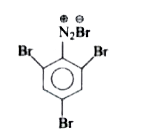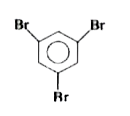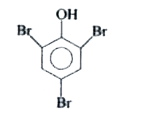The end product of carbohydrate metabolism is
CO2 and H2O
NH3 and CO2
NH3 and H2O
CO2
The correct Answer is:1
Step-by-Step Solution:
1. Understanding Carbohydrate Metabolism: The process of carbohydrate metabolism primarily involves the breakdown of carbohydrates (like starch and sugars) into simpler forms. The most common carbohydrate that is metabolized is glucose.
2. Digestion of Carbohydrates: Carbohydrates are digested in the small intestine, where they are broken down into glucose. This glucose is then absorbed into the bloodstream.
3. Transport of Glucose: Once in the bloodstream, glucose is transported to all cells of the body. This is crucial for cellular respiration, which is the process by which cells generate energy.
4. Metabolism of Glucose: Inside the cells, glucose undergoes a series of metabolic processes. The primary pathways include glycolysis, the Krebs cycle, and the electron transport chain (ETC).
5. End Products of Metabolism: The end products of glucose metabolism are:
- Carbon Dioxide (CO2)
- Water (H2O)
- Adenosine Triphosphate (ATP), which is the energy currency of the cell.
6. Evaluating the Options: Given the options:
- Carbon dioxide and water
- Ammonia and carbon dioxide
- Ammonia and water
- Only carbon dioxide
The correct answer must include the end products of carbohydrate metabolism. Since glucose metabolism results in carbon dioxide and water, the correct option is "Carbon dioxide and water".
Final Answer:
The end product of carbohydrate metabolism is carbon dioxide and water.
---
- Carbon Dioxide (CO2)
- Water (H2O)
- Adenosine Triphosphate (ATP), which is the energy currency of the cell.
- Carbon dioxide and water
- Ammonia and carbon dioxide
- Ammonia and water
- Only carbon dioxide
The end product of carbohydrate metabolism is carbon dioxide and water.
Topper's Solved these Questions
- HUMAN PHYSIOLOGY -IBOOK - ALLENCHAPTER - HUMAN PHYSIOLOGY -IEXERCISE - Exercise-II(Previous Year Questions)
1 Videos
- HUMAN PHYSIOLOGY -IBOOK - ALLENCHAPTER - HUMAN PHYSIOLOGY -IEXERCISE - AIPMT 2007
1 Videos
- HUMAN PHYSIOLOGY -IBOOK - ALLENCHAPTER - HUMAN PHYSIOLOGY -IEXERCISE - DIGESTIVE GLANDS
14 Videos
- HUMAN HEALTH AND DISEASEBOOK - ALLENCHAPTER - HUMAN HEALTH AND DISEASEEXERCISE - Question
116 Videos
- HUMAN REPRODUCTION BOOK - ALLENCHAPTER - HUMAN REPRODUCTION EXERCISE - Question
92 Videos
Similar Questions
Knowledge Check

The end product Y is :A B
B C
C D
D
The end product of reaction is :
 A
A B
B C
C D
D
The end product of glycolysis is
Apyruvic acidBglycoseCethyl alcoholDCO2
Carbohydrate metabolism is controlled by
View SolutionMain glucocorticoid hormone responsible for carbohydrate metabolism is
View SolutionWhich of the hormones possesses an effect which is antagonistic to insulin in context of carbohydrate metabolism?
View SolutionIf 'X' is a hormone which controls the carbohydrate metabolism in the body and 'Y' is a hormone which controls the secretion of 'X', then 'X' arid 'Y' are
View SolutionHormones involved in carbohydrate metabolism are
View Solution

